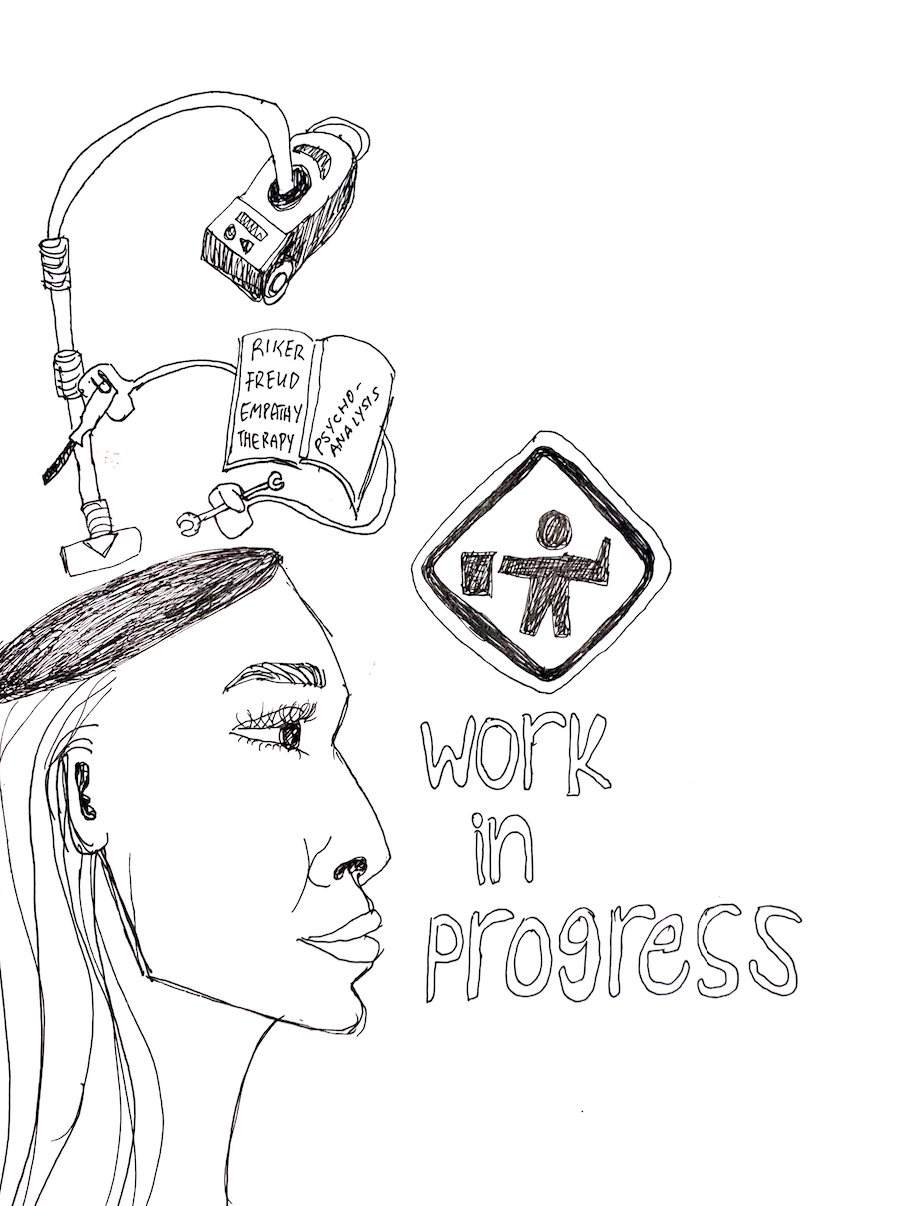
In the first two days of Philosophy and Psychoanalysis with Professor John Riker, we explored what psychoanalysis is, its historical roots, and its significance within today’s context. Our assignment was to summarize the night’s reading, as well as respond with personal reflections.
In my reflections, I discovered that I previously misunderstood psychoanalysis because I falsely overestimated the reliance of the theoretical approach by analysts; therefore, I intellectually disregarded psychoanalysis as I believed it was a process that would overanalyze childhood experiences I deemed as irrelevant. In a way, I generalized the field of psychoanalysis to be solely deductive, while unaware of the hermeneutic approach. I believe that this disregard of psychoanalysis inspired a desire in me to pursue neuroscience.
While reading the beginning of Riker’s book, I found my experiences echoed in his writing. As a sophomore declaring my major, I was unable to be vulnerable with my own psychological landscape, so I grasped onto objectivity to deal with my issues. I began questioning the nature of the mind, rather than the nature of my own mental processes because it was too painful at the time to confront my sufferings in a personal manner. As Riker puts it, I attempted to understand my suffering in which the “mind is erased and replaced by the study of behavior and/or the brain” (Riker, xix). Riker’s work allowed me to accept subjectivity as an inherent part of the mind by definition and by nature, leading to the logical conclusion that subjective modes of intervention can perhaps be more applicable to psychological suffering than objective modes of intervention. After all, it is the subjective experience of the analysand that laid the foundation for psychopathy-related behaviors.
Having grasped an understanding of psychoanalysis, we then turned to Freud, the pioneer of psychoanalysis. Class discussions on Freud were invigorating as students contemplated the legitimacy of Freud’s different theories, including the theory of the unconscious regarding dream interpretations, and the theory of psychosexual development. I was compelled to psychoanalyze my own dreams according to Freud’s theory because I sometimes experience nightmares.
Freud attributes dreams to be the guardians of sleep because dreams reveal the unconscious in an obscured and censored way, preventing one’s consciousness from realizing the forbidden information residing in the unconscious. Following Freud’s process of free association, I discovered transference, projection, and resistance at play in my dream. Although my nightmare was too personal to share, I am happy to say that the process of psychoanalysis, along with Riker’s helpful guidance, allowed me to delve into and further understand my psychological landscape.